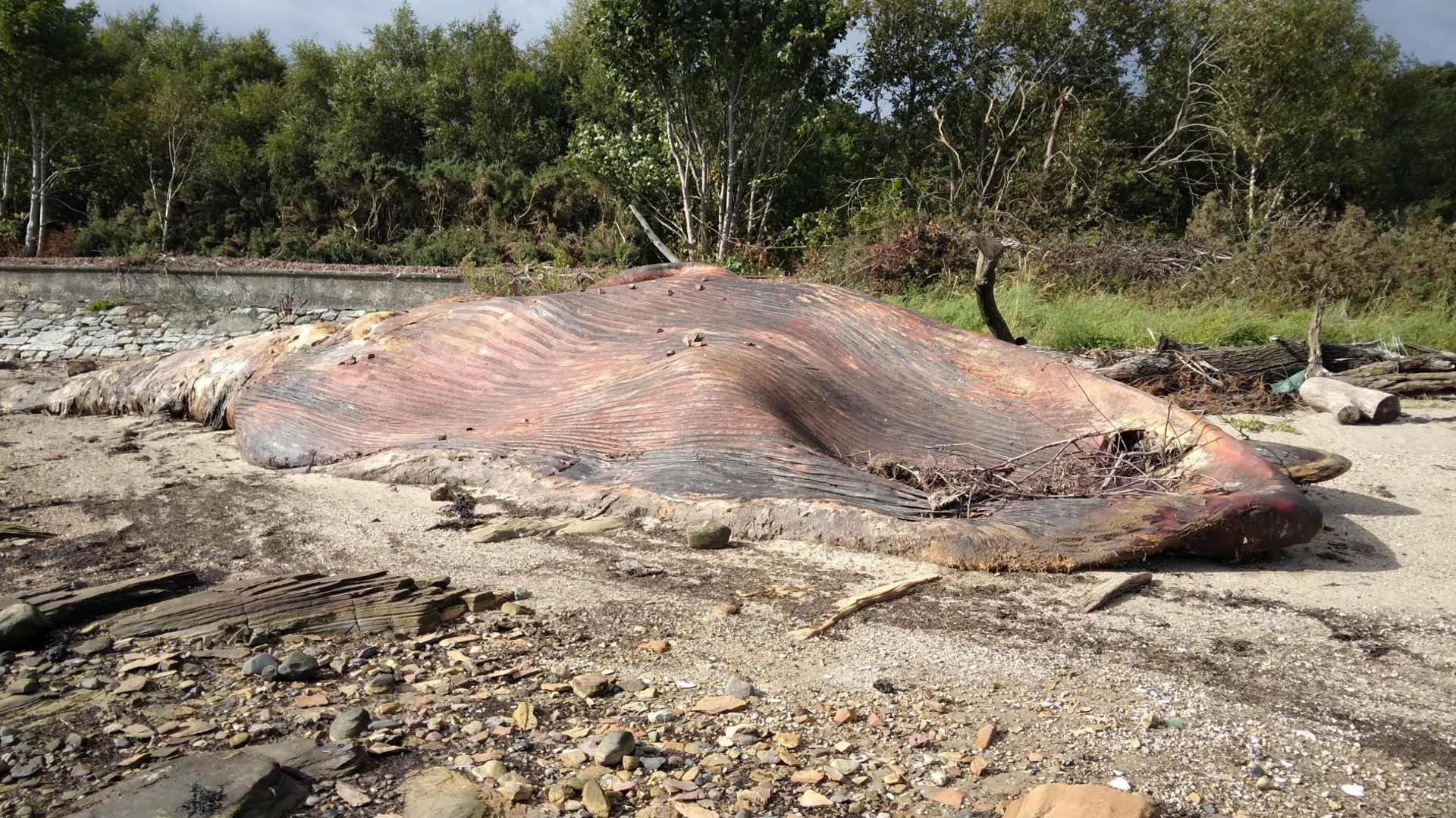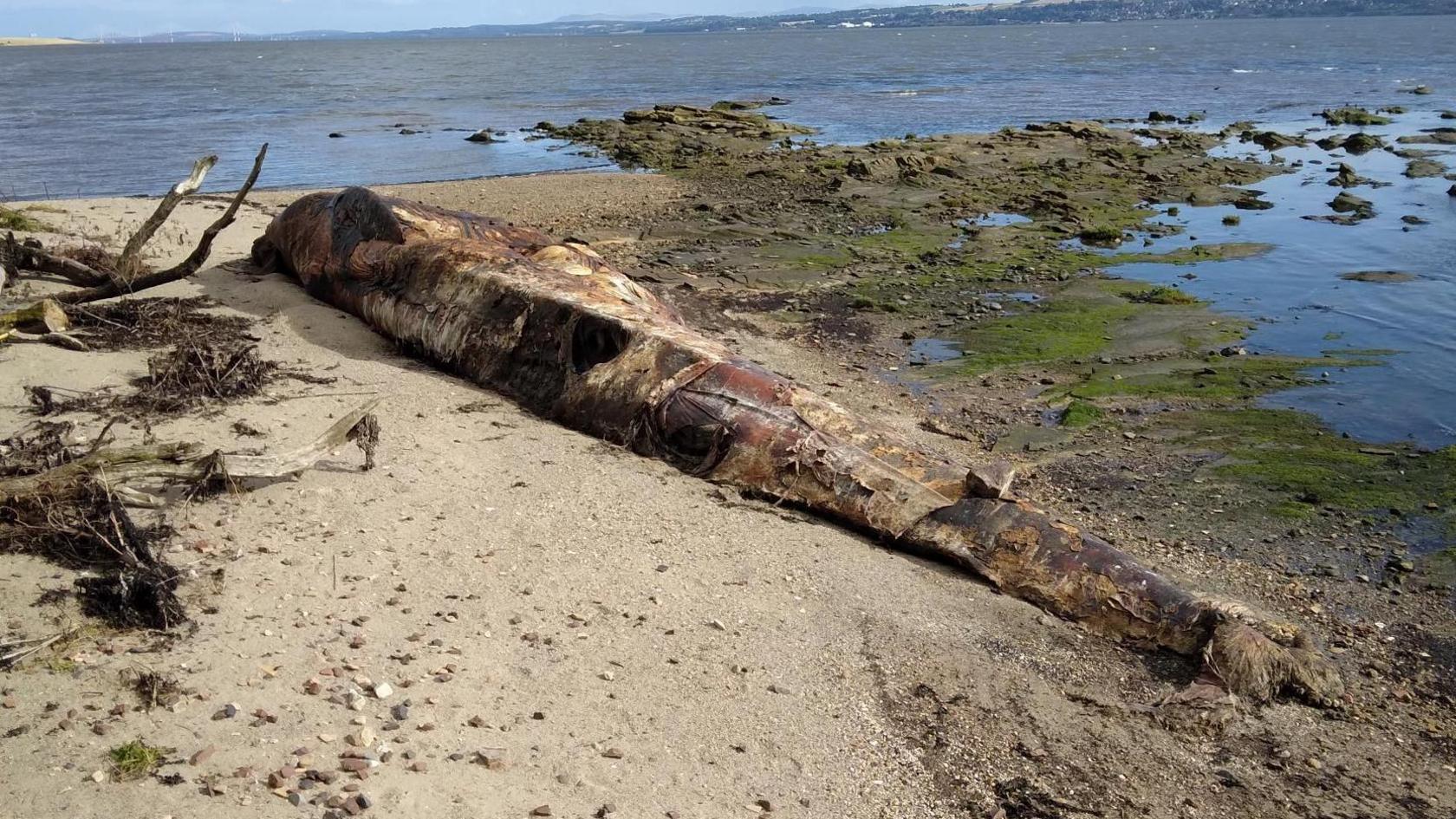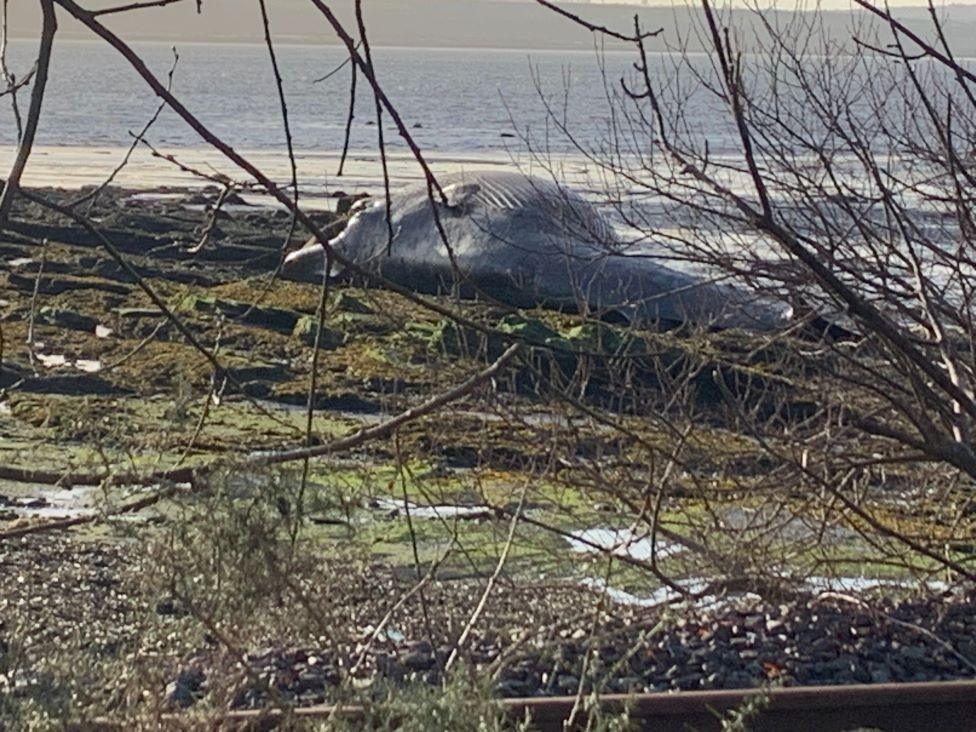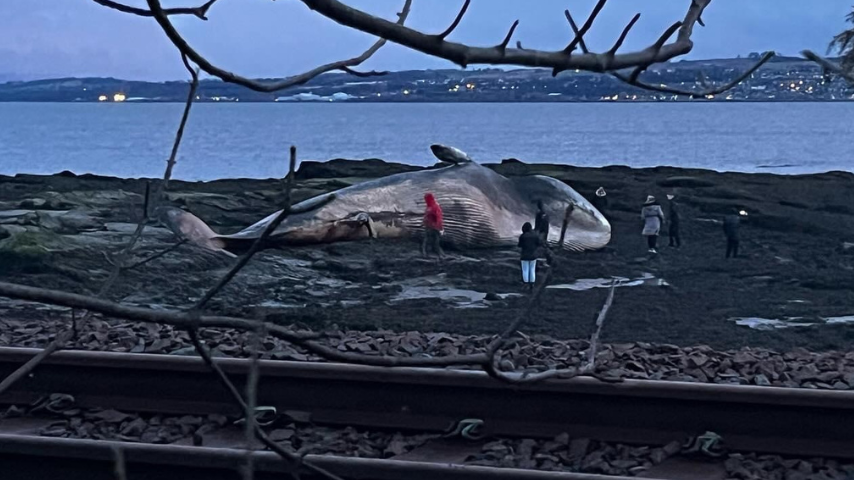Washed-up whale left to rot naturally for months

The carcass of the fin whale was found on the beach near Culross in January
- Published
A dead fin whale which stranded on the shore near Culross more than nine months ago is now acting as an "important food source for wildlife", according to a local nature organisation.
The 17-metre-long carcass was discovered on the beach between the Fife village and the former Longannet Power Station site in January.
Fife Coast and Countryside Trust, which deals with stranded whales on behalf of the council, later said it would be left in its original location to decompose naturally.
It is now said to be in the latter stages of decomposition and expected to be fully decomposed in the next few months.
Started to decay
The fin whale - the second-largest species of whale - is likely to have been washed up as a result of the strong winds that lashed the country during Storm Jocelyn.
The species is known for having a distinct ridge along its back behind the dorsal fin, which gives it the nickname "razorback”.
When discovered, the trust said the whale had already started to decay and was not suitable for a cause of death examination.
After consultation with community representatives, stakeholders and partners, the decision was made by Fife Coast and Countryside Trust to reject disposal options, which included burying the carcass, transporting it to a landfill or towing it out to sea.
It was instead decided the whale would not be moved due to the inaccessibility of the area to beach users and dog walkers and its proximity to the railway line.
The countryside trust believed leaving it where it was caused the least disruption to locals and visitors.
It is said the carcass would enrich the coastal environment and provide a source of protein and fat to local wildlife over the winter months.
The dead whale, which has been continuously monitored by wardens, does not pose any health and safety risk to the public in its current position, the trust said.

Fin whales are the world's second largest species of whale after the blue whale
However, local councillor Sam Steele said last month on Facebook concerns had been raised in the community about the stench emanating from the rotting carcass.
She stated in her post: "The whale carcass on the beach was mentioned again at the recent Culross Community Council meeting, and I'd received a couple of complaints from residents that the smell was becoming overpowering."
Police Scotland had previously issued a warning after receiving reports of people crossing the live railing line in order to catch a closer look.
The wildlife charity urged people to stay away from the rotting carcass.
Robbie Blyth, Fife Coast and Countryside Trust's head of operations, said: "The fin whale carcass is in the advanced stages of decomposition, and this is accelerating due to weather and high tides. I expect it will have fully decomposed in the next few months.
“We’ve been regularly monitoring the carcass’s location and smell since it stranded. The public will notice a smell if close to it, for example while walking the Fife Coastal Path close by, and we continue to monitor that.
“Walkers are reminded that it is an offence to cross the railway line to look at the carcass.”
Related topics
- Published26 January 2024

- Published5 February 2024
